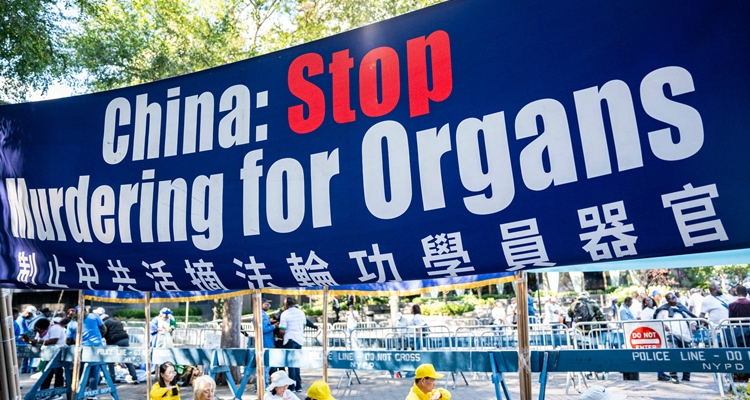
A Hong Kong Free Press survey of its failed attempts to report on various local government departments understates the extent of the Chinese government’s blockade on information about what it does.
In ostensible obedience to the wishes of Hong Kong officials, HKFP had sought to tell “good stories” about the work of various Hong Kong agencies. The subjects it hoped to investigate were mostly innocuous: how does Hong Kong train police dogs and keep them fit, how does Hong Kong dispose of sewage, etc. An exception was a proposed story about how the city’s prison system looked out for the welfare of prisoners—maybe it makes no great effort to do so.
In any case, Hong Kong officials typically refused to grant access to inquire about even the most uncontroversial matters.
The dangerous questions
How much more adamant the refusal would have been—and how much more dangerous the request—if HKFP had sought information on Hong Kong government’s assaults on freedom of speech and democracy or on the mainland government’s persecution of Uyghurs, Tibetans, practitioners of Falun Gong, Christians, Buddhists.
Aside from official government announcements about laws and policies and official denials of accusations, news of such things must be obtained from victims and their families, lawyers, anonymous witnesses, the occasional repentant official—and, possibly, an unauthorized release of internal government documents.
Reporters wouldn’t get anywhere trying to ask this question of CCP officials: “Why in China are young people in large numbers disappearing without a trace?” (pnews, June 15, 2025).
Fifteen-year-old Hu Xinyu disappeared from Zhiyuan High School in Jiangxi Province on October 14, 2022. Despite the school having 119 surveillance cameras, none recorded Hu leaving campus. Incredibly, multiple cameras malfunctioned on the day he vanished. Over 100 days later, police claimed he had committed suicide in a grain depot near the school.
The explanation defied logic. The depot was surrounded by a 16-foot-high wall, and Hu had supposedly hung himself from a 16-foot-high pipe using shoelaces—an act requiring incredible athleticism and highly improbable materials. More disturbing still, when his body was found, all of his internal organs were missing. Police dogs had searched the area several times and found nothing. Authorities closed the case without addressing these glaring inconsistencies.
A CNN story and other stories about the incident mention the mysterious circumstances but not the claim that organs were missing from Hu Xinyu’s corpse. On April 12, 2023, en.minhui.org, a Falun Gong site, reported:
Song Zude, a famous Chinese commentator with a Master’s degree from Shanghai Medical University, posted a message on his Weibo (social media) account, claiming that Hu was killed on the day he went missing. “His parts (organs) were delivered by a very fancy car to an operating table in a hospital in Shanghai on the evening on October 14. Whoever bought his parts offered a very attractive price.”
Although Song’s account couldn’t be independently verified, Hu’s story and the frequently reported disappearance of many other college students in China could leave people to speculate on the possibility that they were killed for their organs, a horrific crime that is still going on in China today.
So we don’t know for sure whether this boy was murdered in order to steal his organs. But we know that forced organ harvesting—which almost invariably means the death of the unwilling donor—occurs in China on a massive scale and with the blessing of the Chinese Communist Party government.
We don’t know the exact number of the many victims of forced organ harvesting or all the details of how this evil program works. And no reporter will be learning the answers from sit-downs with Xi Jinping or any other incumbent Chinese Communist Party officials.
Also see:
The Epoch Times: “House Overwhelmingly Passes Stop Forced Organ Harvesting Act” (May 7, 2025)
“The act would sanction anyone implicated in the abuse, including members of the Chinese Communist Party, blocking their property and barring them from engaging in U.S. transactions. Such individuals would also have their visas revoked and lose other immigration benefits.
“Under the legislation, those involved in forced organ harvesting would also face a maximum civil fine of $250,000, and for those engaging in the act willfully, a criminal penalty of up to $1 million and 20 years in prison.”
The Epoch Times: “Former Chinese Official Sounds Alarm Over CCP’s Forced Organ Harvesting” (December 27, 2024)
The Epoch Times: “Forced Organ Harvesting in China Has Taken Place ‘on a Significant Scale,’ Independent Tribunal Finds” (June 18, 2019)
China Tribunal: “China Tribunal Full Judgment” (March 2020)
StoptheCCP.org: “Killing to Order: China’s Thriving State-Sanctioned Industry of Forced Organ Harvesting”











